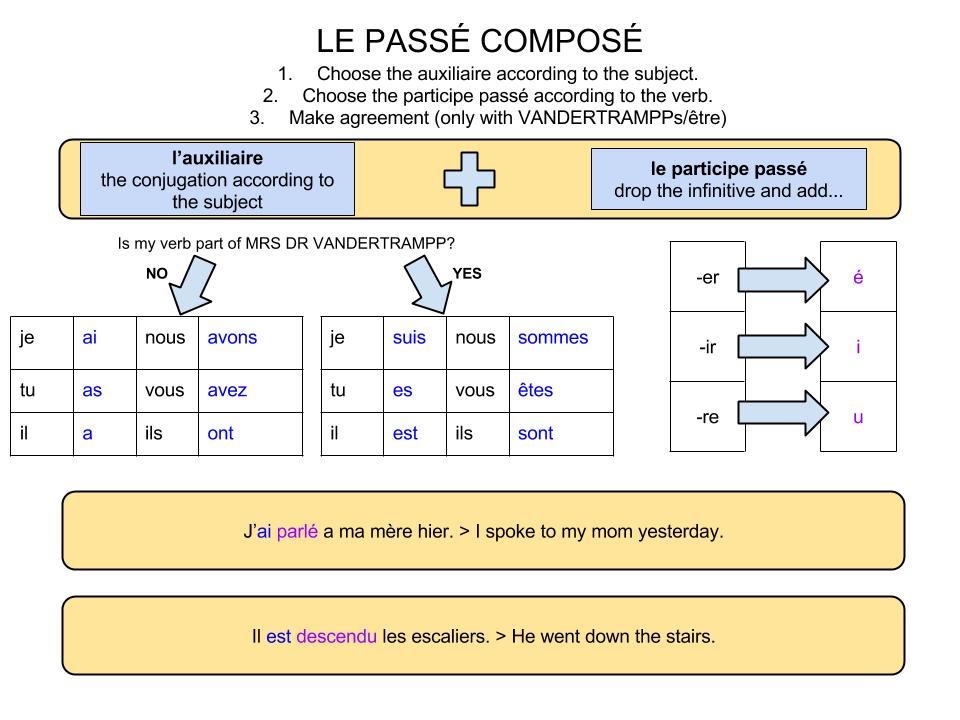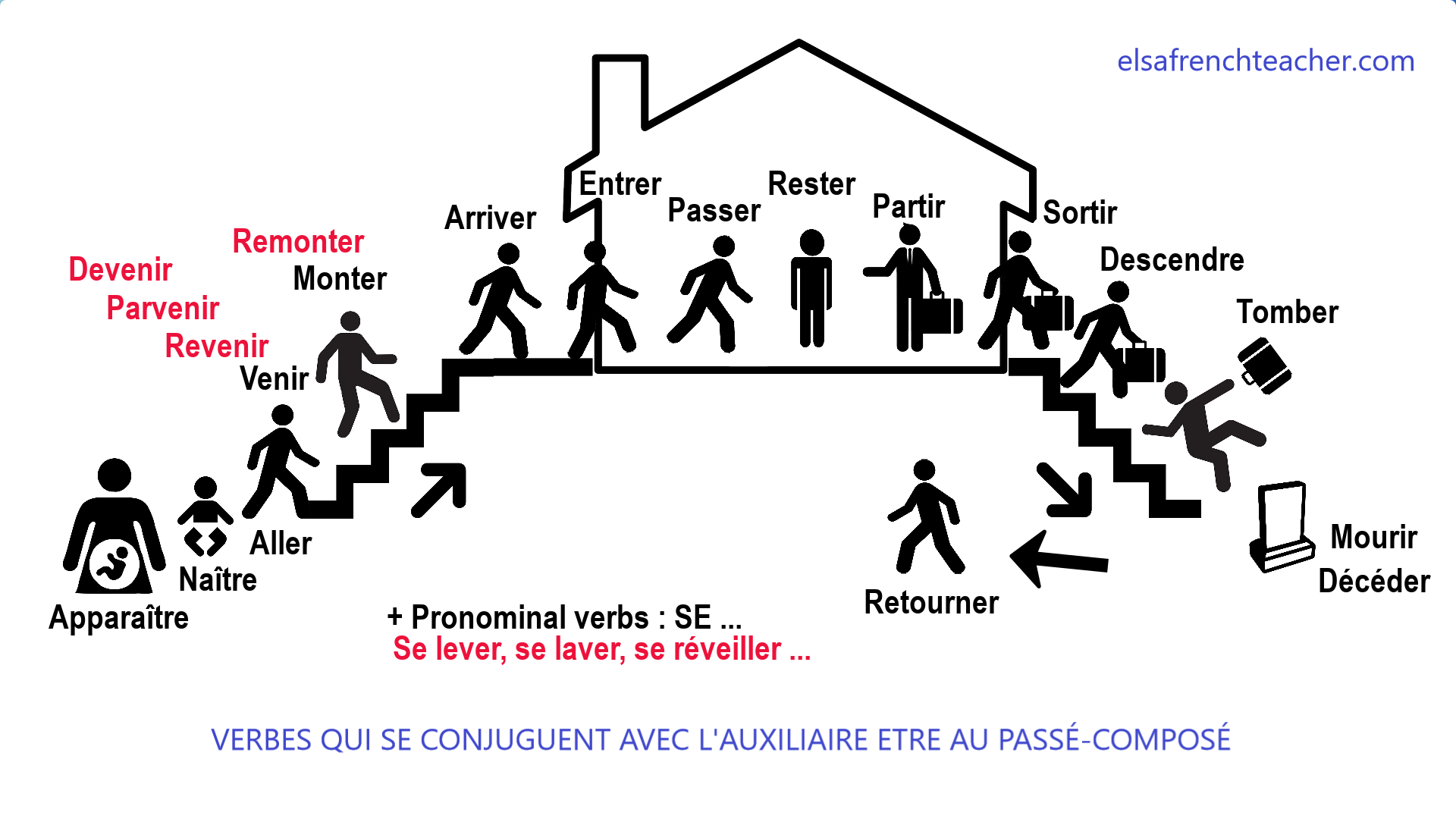Past Tense
The three steps to the past tense in Français
- The personal pronoun (je, tu, il etc.)
- The correct part of the auxiliary verb AVOIR (to have)
- The past participle
The past participle
For ER Verbs:
- Cut off the ER
- Add é
For IR Verbs:
- Cut of the R
For RE Verbs:
- Cut of the RE
- Add u
Agreement of Participles
Only with Être (Not for Avoir)
The participles must agree in gender and in number with the subject of the sentence
The Verbs of Movement
The verbs of movement use Être instead of Avoir (when in the past tense)
You also use Étre instead of Avoir for reflexive verbs
The Verbs of Movement/MRS DR VANDERTRAMPP
| Français | Anglais | |———–|————————–| | aller | to go | | arriver | to arrive | | descendre | to go down | | naître | to be born | | partir | to leave | | entrer | to enter | | monter | to go up | | mourrir | to die | | sortir | to got out | | rester | to stay | | tomber | to fall | | venir | to come | | retourner | to turn back (to return) |

The Irregular Past Particles
| Verb | Ending |
|---|---|
| avoir | eu |
| boire | bu |
| connaître | connu |
| courir | couru |
| craire | cru |
| devoir | dû |
| dire | dit |
| écrire | écrit |
| faire | fait |
| lire | lu |
| mettre | mis |
| ouvrir | ouvert |
| pouvoir | pu |
| prendre | pris |
| recevoir | reçu |
| rire | ri |
| savoir | su |
| vivre | vécu |
| voir | vu |
| vouloir | voulu |
